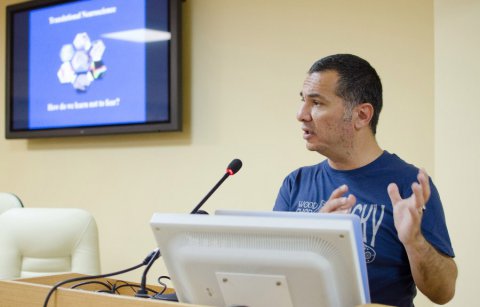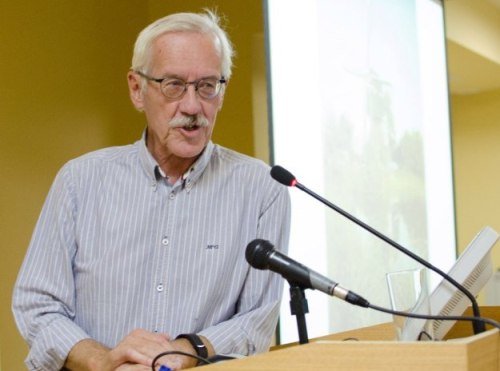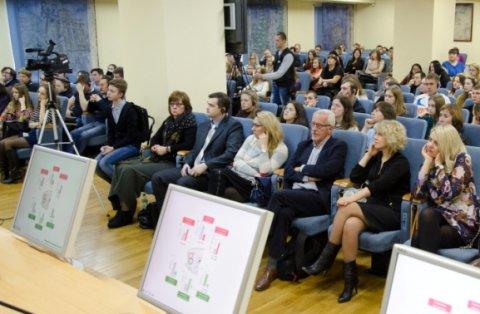On October 11th the first open lectures were held by international scientists visiting SUSU as part of an International Science Council meeting.
The marathon of lectures was opened by Mohammed Milad, assistant professor of the Harvard Medical School and director of the laboratory of behavior neurology at Massachusetts General Hospital.
His first lecture was dedicated to the biological bases of fear extinction in patients with PTSD. In the lessons held at the Sigma lecture hall, the researcher discussed what anxiety is and how they relate to diseases of the brain. Every person experiencing strong anxiety in certain conditions keeps memory of it. For example, if they hear a particular song and end up in an accident, even after many years they will experience a feeling of anxiety when they hear this song. This is related to the fact that the human body has the ability to build associations with stressful situations.

Doctor Milad noted that a small percentage of people’s anxiety does not fade, but rather stays at the same level as when they are experiencing very high stress. To further study this process, the doctor and his team held experiments with mice. It turns out that rodents and humans have similar areas in their brains which act as accelerators and decelerators of stress. Using tomography the researchers determine which of these areas is most active at a particular moment of stress. In this way they were able to find that you can teach a rat to not fear a sound which earlier caused anxiety.
In his lecture, doctor Mohammed Milad held an experiment on the audience; he showed blue and red lamps, after which, in theory, the audience should have been hit by an electrical shock, and a yellow lamp, after which they were not. In the next stage, the researcher only turned on the shock after the red lamp. In this way, the students’ anxiety from the blue light faded. According to the professor, this process should be implemented in life.
Fighting with one’s own anxiety can prevent both the development of many illnesses and improve work and study efficiency.
“When students are preparing for exams, they accrue both knowledge and stress. In order to remember everything, they need to sleep at least 7-8 hours a day. Physical exercises also help. This is the key to fighting anxiety and stress before exams. Stress tends to accumulate in body and constrains people. Physical exercises help them release this energy. Breathing exercises or yoga are alternatives,” notes Mohammed Milad.

The topic of stress was continued by professor from the Leiden University and professor of the Royal Netherlands Academy of Arts and Sciences, doctor Ron de Kloet. His developments on the topic of the biomarkers of stress are based on research on the cortisol hormone which answers for the body’s stress response. This hormone is released in a small amount every day so that a person can be active and productive. However, as de Kloet claims, there are a range of factors which lead to an increased cortisol level. Among these are sleep disturbances, an absence of social support, and drinking alcohol.
The combination of a few factors to the chronic release of this hormone in high doses, which means a person is unable to deal with stress. As a result, blood pressure increases and leads to increased stress on the body. As doctor de Kloet stated, their experience with rats showed that if you temporarily remove children from their mothers, even at an older age, these rats will have a higher release rate for the cortisol hormone. To investigate how stress affects the body, researchers utilize mineralocorticoids (mr) and glucocorticoids (gr), hormones which help control the release of cortisol. It is possible to train the body to release a normal quantity of this hormone in two ways. First, using spatial learning memory, or brain stimulation. Second, by training and forming habits in the body or developing particular reactions.
Using these processes it is possible to bring the cortisol levels to normal, avoiding physical and psychological illnesses. At the end of his lecture, doctor Ron de Kloet gifted the university letters from chocolate – MR and GR – abbreviations of the hormones that his lecture discussed.




